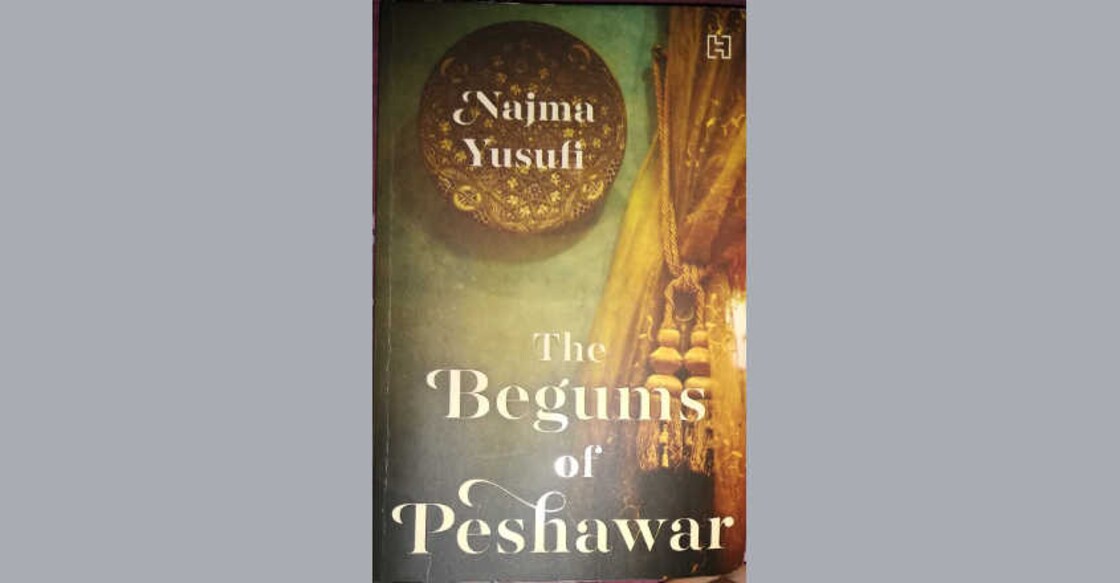An engaging tale of the Durrani daughters

Mail This Article
Book: The Begums of Peshawar; Author: Najma Yusufi; Publisher: Hachette India; Price: Rs 399; Pages: 306
This book, the debut novel by Najma Yusufi, a filmmaker and lecturer, is her tribute to her ancestors - the Afghan Durranis settled in Peshawar. A descendant of the Durranis on her mother's side, she tells the story of the last ruling Afghani royal family which separated, scattered and now occupies a small corner of Munda Beri in the Pakistani city. Dispossessed and disheartened, they cling to their former glory.
Najma Yusufi, whose father Mehmood Ali Khan Yusufi hails from Uttar Pradesh, has dedicated the novel to her mother Afsar ‘Bibigul' Durrani – and the book is about the four Durrani daughters: Quiet and dutiful Bibigul; vain and clever Maagul; knowledge-hungry Chan; shy and overshadowed Firasat.
It is also about Bano, the servant girl who breaks the shackles and revolts against her bad 'kismet' to live her own life.
'The Begums of Peshawar' is a work of fiction but the characters, places and events bear strong resemblance to the writer's life - a historical account of the family, which was royal a long time ago in Afghanistan but in Peshawar they just play pretend.
After completing her BA from the London College of Fashion, Najma worked for a number of fashion houses before beginning her foray into writing after her mother's death in 2001. The author, who was born in London, grew up in Britain, Africa and Asia, also made films on the transgender community in Pakistan and the lawyers of Lucknow.
Najma did an MA in creative writing from Cardiff University. Her Master's thesis was about the oral storytelling tradition that she had imbibed from her grandmother and aunts. It was at Cardiff that she started working on her debut novel.
According to her, she was shipped off to lead a marginalised life in Pakistan during her formative years. She later returned to the Britain with a view on two cultures and 'The Begums of Peshawar' reflects the clash between the two.
The novel spans five decades, moving from Peshawar and Lahore to London. The author described vividly the life of the Durranis, their traditions, engagements, weddings, other rituals, the life of servants, and also the activities in the 'baithak', or men's lounge, where dancing girls performed during the nights.
The novel captures the life in the 'Big House', as the ancestral house of Durranis was called, the growing up of four sisters who knew how to read books written in English, put on make-up and carry off beautiful clothes, their marriages and then the challenges they face in the houses of their in-laws: Lack of freedom in male-dominated, conservative families.
"In these parts, waiting was an art that has been honed to perfection. It was something you were born to, if you were a woman, and embedded in you from girlhood. Waiting for father's permission to do basic things. You waited for food. You waited for your mother's love after she had finished tending to her male offspring. You waited for freedom. You waited for your husband's love." This is how Najma Yusufi beautifully sums up their plight.
The sisters believe their mother is to be blamed for the sorry state of their relationships with their husbands as she had failed to train them adequately for a married life.
Chan's husband sends her back to her parents for not helping him to go to London and marries another woman. Bibigul suffers abuse at the hands of the man she marries after falling in love when he used to come home to teach. The problems of Maagul were because of her tendency to show-off and need for upward mobility.
Firasat, who is made fun of by other sisters for her dark complexion, too suffers cruelty at the hands of her conservative husband. However, the story ends on a positive note with Firasat's son standing up to his father, who is against his daughter-in-law, a doctor, working at a hospital.

